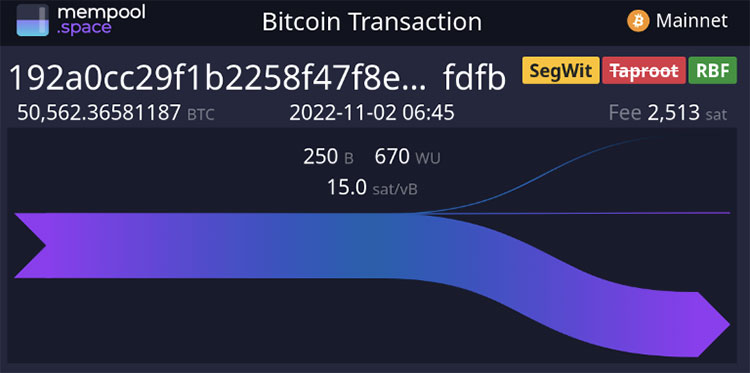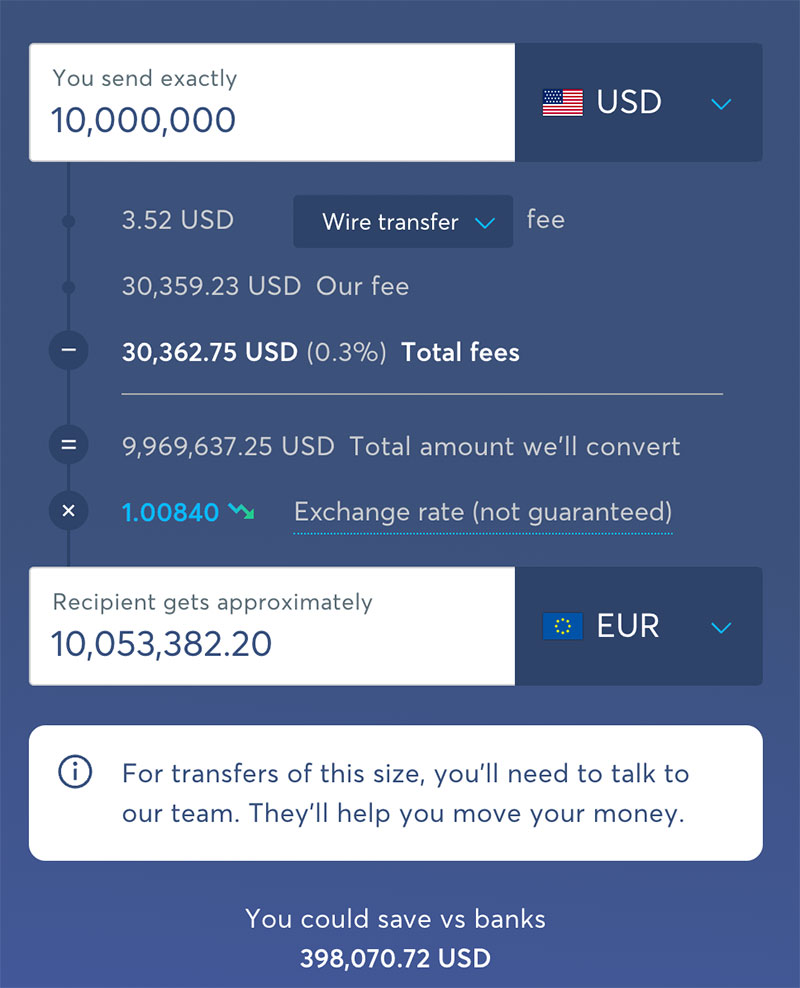At just 15 sats/vByte, a Bitcoin user is demonstrating just how cheap it is to send vast sums of money across the internet.
Billionaires, take note. It’s one million times cheaper to send huge sums of money on the Bitcoin blockchain.
A Bitcoin user sent over 50,562 BTC ($1 billion) to an address on the blockchain, paying a fee of just 2,513 Satoshis (the smallest denomination of a Bitcoin), equivalent to half a dollar for the pleasure.
The unknown wallet address paid a tiny fraction (less than 0.0001%) of the total value transacted. Put simply, the user paid 50 cents to move double the GDP of the Bitcoin-friendly islands of Tonga. The billion-dollar transaction was processed in block 761374, at a transaction fee of just 15 satoshis (sats) per unit of data or sats/vByte.
Stay in the know on crypto by frequently visiting Crypto News Today
Cointelegraph experimented with various online banking services to estimate the cost of sending vast sums of money through legacy finance tools. For the transfer of $10 million, a well-known remittance provider charges a tiny fraction, 0.3%, which equates to $30,000. That’s one million times more expensive than using the Bitcoin blockchain to send money.
Before a new Bitcoin block is mined, every Bitcoin transaction request sits in the memory pool, or “mem pool”, which is kind of like a Bitcoin bus stop. On average, miners take 10 minutes to mine a new block.
Bitcoin miners sort through transactions, processing the passengers that have the most expensive bus tickets (transaction fees) first. Typically, the higher the transaction fee, the faster the transaction is confirmed. At 15 sats/vByte, the cost of sending over 50,000 Bitcoin is very low, indicating that this Bitcoin whale was not in a hurry.

By way of comparison, in late October, a fat-fingered Bitcoin user paid a whopping 8,042 sat/Byte, or 1,136,000 sats to move 3.8 Bitcoin ($65,000).
The process of sorting through transactions in the mempool is relatively straightforward for miners. Contrary to many Bitcoin critics’ beliefs, it is not an energy-hungry process. Ultimately, Bitcoin’s energy consumption comes from block reward issuance, not transactions.
The Bitcoin whale address continued to send over 50,000 Bitcoin to various other addresses on the blockchain. The addresses are not publicly known addresses, such as Binance’s cold storage wallet or the Bitcoin mined in 2009, which was subsequently lost in a landfill in Wales.![]()
Read More at COINTELEGRAPH
Please Read Essential Disclaimer Information Here.
© 2024 Crypto Caster provides information. CryptoCaster.world does not provide investment advice. Do your research before taking a market position on the purchase of cryptocurrency and other asset classes. Past performance of any asset is not indicative of future results. All rights reserved.
Contribute to CryptoCaster℠ Via Metamask or favorite wallet. Send Coin/Token to Addresses Provided Below.
Thank you!
BTC – bc1qgdnd752esyl4jv6nhz3ypuzwa6wav9wuzaeg9g
ETH – 0x7D8D76E60bFF59c5295Aa1b39D651f6735D6413D
MATIC – 0x7D8D76E60bFF59c5295Aa1b39D651f6735D6413D
LITECOIN – ltc1qxsgp5fykl0007hnwgl93zr9vngwd2jxwlddvqt







